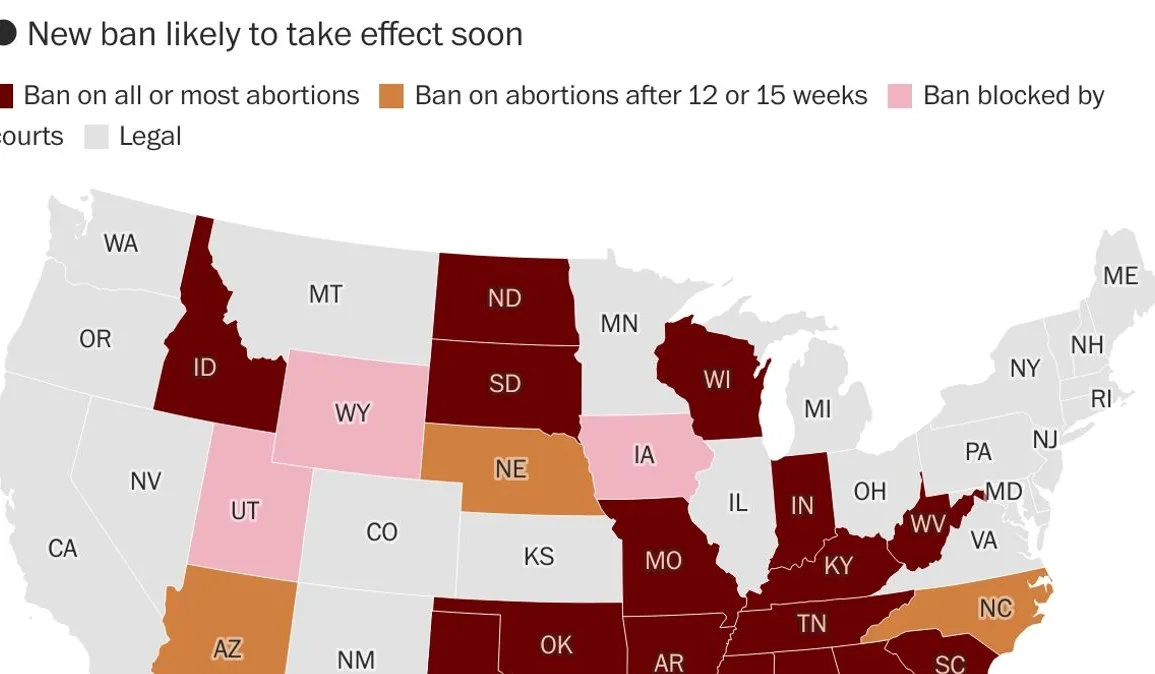
The Democratic Legislative Campaign Committee (DLCC) is spotlighting the grave consequences of abortion restrictions on Black women, particularly in states governed by Republicans. New York Senate President Pro Tempore Andrea Stewart-Cousins underscores the alarming increase in reproductive health complications and maternal mortality rates among Black women due to these bans. According to the Centers for Disease Control and Prevention, Black women experience the highest abortion rate in the U.S., with recent restrictions exacerbating socioeconomic disparities. Advocates argue that abortion coverage bans, like the Hyde Amendment, disproportionately harm Black and Latinx individuals, who are more likely to be Medicaid enrollees.
Disproportionate Effects and Maternal Mortality
Research by the DLCC reveals a strong link between the restrictive abortion laws of Republican-led states and elevated maternal mortality rates among Black women. In states such as Florida and Georgia, the risk of pregnancy-related deaths for Black women is significantly higher compared to their White counterparts. DLCC President Heather Williams criticizes the Republican-imposed reproductive freedom restrictions as life-threatening, emphasizing their particularly devastating impact on Black communities. However, Dr. Ingrid Skop from the Charlotte Lozier Institute counters this argument, denying that increased abortion access would lower Black maternal mortality.
Legislative Efforts and Advocacy
In response to the maternal health crisis, efforts such as a bill proposed by Republican state Rep. Lauren Daniel in Georgia aim to establish a commission on maternal and infant health. Meanwhile, Vice President Kamala Harris is vocal about the harmful effects of restrictive abortion bans on Black women, especially in terms of maternal mortality rates. She stresses the necessity of abortion access in addressing the maternal health crisis. Stewart-Cousins calls for Democratic oversight of reproductive health policies to safeguard women’s lives, with a focus on protecting Black women.
Political and Social Implications
The ongoing debate over abortion rights and access underscores a broader societal and political divide. While some argue for stricter abortion laws in the name of morality and protection of life, others highlight the critical need for accessible reproductive healthcare as a matter of racial and social justice. The impact of these laws on Black women’s health and well-being puts a spotlight on the intersection of healthcare, race, and politics, urging a reevaluation of policies that disproportionately affect marginalized communities.
As the discourse around reproductive rights and maternal health continues to evolve, the implications of current policies and the potential for future legislative changes remain a point of significant concern and debate. The focus on protecting the health and rights of Black women within this context is not only a matter of healthcare policy but also a critical aspect of the broader struggle for equality and justice.


